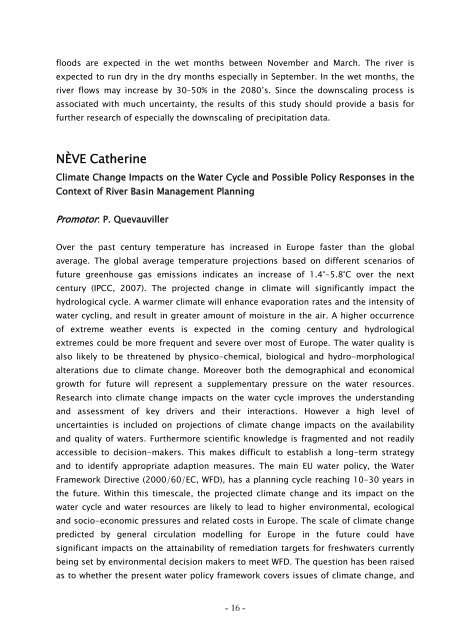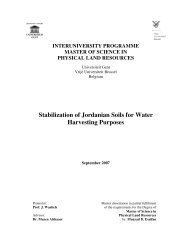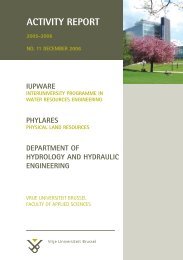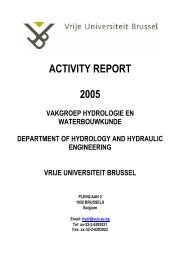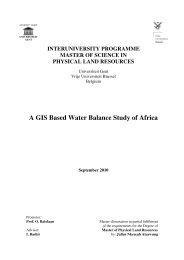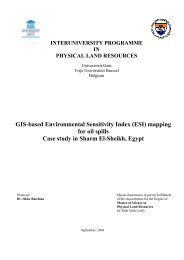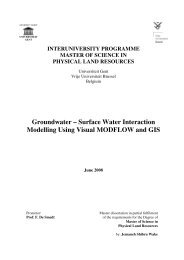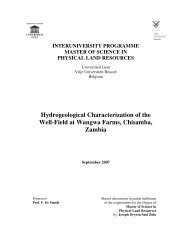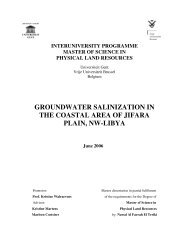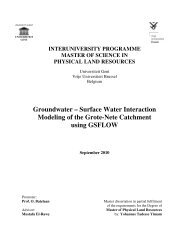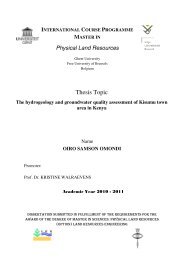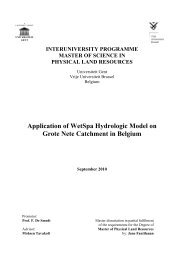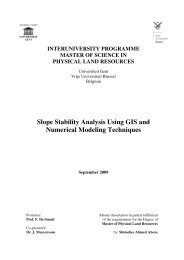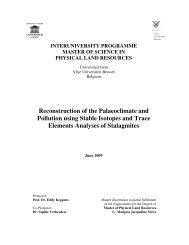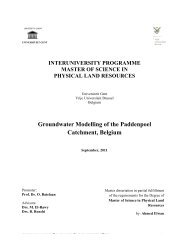C O N T E N T S - Physical Land Resources - Vrije Universiteit Brussel
C O N T E N T S - Physical Land Resources - Vrije Universiteit Brussel
C O N T E N T S - Physical Land Resources - Vrije Universiteit Brussel
Create successful ePaper yourself
Turn your PDF publications into a flip-book with our unique Google optimized e-Paper software.
floods are expected in the wet months between November and March. The river isexpected to run dry in the dry months especially in September. In the wet months, theriver flows may increase by 30–50% in the 2080’s. Since the downscaling process isassociated with much uncertainty, the results of this study should provide a basis forfurther research of especially the downscaling of precipitation data.NÈVE CatherineClimate Change Impacts on the Water Cycle and Possible Policy Responses in theContext of River Basin Management PlanningPromotor: P. QuevauvillerOver the past century temperature has increased in Europe faster than the globalaverage. The global average temperature projections based on different scenarios offuture greenhouse gas emissions indicates an increase of 1.4°-5.8°C over the nextcentury (IPCC, 2007). The projected change in climate will significantly impact thehydrological cycle. A warmer climate will enhance evaporation rates and the intensity ofwater cycling, and result in greater amount of moisture in the air. A higher occurrenceof extreme weather events is expected in the coming century and hydrologicalextremes could be more frequent and severe over most of Europe. The water quality isalso likely to be threatened by physico-chemical, biological and hydro-morphologicalalterations due to climate change. Moreover both the demographical and economicalgrowth for future will represent a supplementary pressure on the water resources.Research into climate change impacts on the water cycle improves the understandingand assessment of key drivers and their interactions. However a high level ofuncertainties is included on projections of climate change impacts on the availabilityand quality of waters. Furthermore scientific knowledge is fragmented and not readilyaccessible to decision-makers. This makes difficult to establish a long-term strategyand to identify appropriate adaption measures. The main EU water policy, the WaterFramework Directive (2000/60/EC, WFD), has a planning cycle reaching 10-30 years inthe future. Within this timescale, the projected climate change and its impact on thewater cycle and water resources are likely to lead to higher environmental, ecologicaland socio-economic pressures and related costs in Europe. The scale of climate changepredicted by general circulation modelling for Europe in the future could havesignificant impacts on the attainability of remediation targets for freshwaters currentlybeing set by environmental decision makers to meet WFD. The question has been raisedas to whether the present water policy framework covers issues of climate change, and- 16 -


